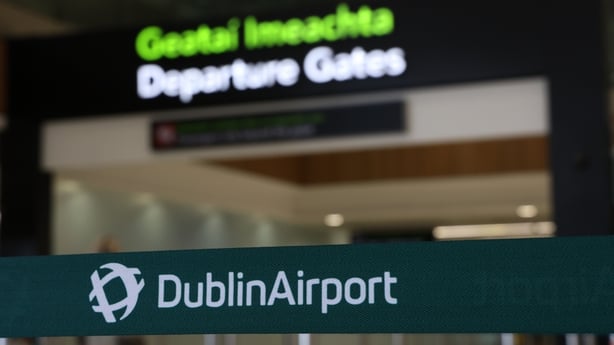Fingal County Council has refused planning permission to Dublin Airport operator's plan to demolish spiral parking ramps at Terminal 1.
Daa was seeking to demolish the spiral parking ramps as they are no longer required for its operations.
Their original function for access to the T1 car park is now obsolete as the airport progresses the commencement of the permitted T1 façade project.
The spirals, constructed in 1972, and when operational, historically provided vehicular access to Levels 40 and 50 of T1 for car parking and services.
In a statement, daa said it will study the latest planning rejection from Fingal County Council and weigh up its options as it remains focused on building a more sustainable Dublin Airport that meets Ireland's future needs for generations to come.
"We are disappointed by the decision, as the spirals need to be removed to deliver a better Dublin Airport for our passengers," daa said.
"These spirals historically provided vehicular access to a now obsolete upper-level car park, and their removal is essential for upgrading Terminal 1's façade. It is crucial that we prioritise the development of Dublin Airport that allows us to add terminal capacity," it added.
In its decision, the council has refused planning after concluding that the application has failed to show an appropriate rationale or justification for the demolition of the spiral ramps which the council consider to be of technical and architectural interest.
The council has also refused planning permission after finding that the demolition of the spiral ramps would diminish the quality of the proposed facade works granted as part of a planning application lodged in 2020.

The planning authority stated that this would result in the eastern facade of T1 being of a lesser design quality becoming visually dominant when viewed from the surroundings and would be seriously injurious to the visual amenities and character of the area.
A planning report submitted by daa planning consultants Coakley O'Neill Town Planning stated that the spirals have structural issues making them increasingly unsafe for use.
The planning report stated that the spiral ramps are not suitable for reuse, and their continued maintenance as a redundant structure is simply not justified.
In the single submission made on the application, architect and urban designer Angela Rolfe stated that the serial parking ramps represent "a very fine and rare" example of brutalist architecture in Ireland.
Ms Rolfe, who is President of the Irish arm of the International Council on Monuments and Sites, stated that the demolition proposal would "further significantly undermine" the cultural heritage of 20th century aviation.
Objecting to the application, she stated that the proposal to demolish the "iconic" spiral ramps "has been undertaken as a knee jerk reaction to a current commercial/accommodation demand to continue to expand, but has no basis in a long term strategic planning context".
Ms Rolfe described the proposal to demolish the spiral ramps as a "poorly coordinated ad hoc proposed development".
The daa spokesman said: "Besides this application to demolish the spirals, of continued importance and urgency is the need to remove the cap at Dublin Airport and turbocharge the process so we can add and use additional terminal capacity".
"We have a real opportunity with our new government to show Ireland can really get things done fast and live up to our hard-earned reputation as aviation leaders rather than followers. Nothing should be off the table as we look to unblock the passenger cap impasse to protect Ireland’s international connectivity, economy, and jobs," he added.
"Our Government has rightly recognised the importance of sorting out this issue, and daa had a good meeting with Minister [Darragh] O’Brien and his officials last week," he said.
"While we continue to progress through the planning process, we also look forward to fresh thinking and practical solutions to resolve this issue so we can crack on with our long-term investment plans and ensure Ireland’s connectivity now and for the long haul," he stated.
Reporting by Gordon Deegan

